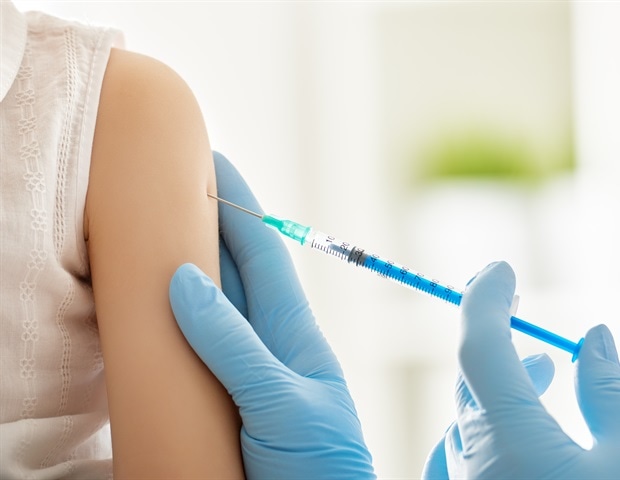
Individuals who have had COVID-19 are at elevated danger of growing sure inflammatory illnesses of the airways, resembling bronchial asthma, hay fever and persistent sinusitis. Nevertheless, vaccination towards the SARS-CoV-2 virus seems to scale back the chance, in keeping with a complete epidemiological examine led by researchers at Karolinska Institutet.
The worldwide analysis crew used an digital well being database in america, TriNetX, to analyze the hyperlink between COVID-19 and so-called type-2 inflammatory illnesses, a gaggle of persistent circumstances through which the immune system overreacts to allergens or infections.
The researchers in contrast 973,794 individuals who had had COVID-19 with 691,270 individuals who had been vaccinated towards the SARS-CoV-2 virus and 4,388,409 wholesome controls with no documented an infection or vaccination.
Irritation within the airways
The outcomes are offered in The Journal of Allergy and Medical Immunology. Individuals who had had COVID-19 had a 66 per cent larger danger of growing bronchial asthma, a 74 per cent larger danger of persistent sinusitis and a 27 per cent larger danger of hay fever in contrast with wholesome controls. Nevertheless, no elevated danger was seen for the pores and skin illness atopic eczema or for eosinophilic oesophagitis, an irritation of the oesophagus.
“Our outcomes recommend that COVID-19 can set off type-2 irritation within the airways, however not in different organs,” says Philip Curman, a doctor and researcher on the Division of Medical Epidemiology and Biostatistics at Karolinska Institutet, Sweden, who led the analysis.
Vaccination towards the virus had the other impact. The danger of bronchial asthma was 32 per cent decrease amongst vaccinated people in contrast with wholesome unvaccinated people. The danger of sinusitis and hay fever was additionally barely decrease.
Greater than twice the chance
When individuals who had had COVID-19 have been in contrast with vaccinated people, an excellent clearer impact was seen. Contaminated people had greater than twice the chance of growing bronchial asthma or persistent sinusitis and a 40 per cent larger danger of growing hay fever in contrast with those that had been vaccinated.
It’s attention-grabbing to see that vaccination not solely protects towards the an infection itself, but in addition seems to supply good safety towards sure respiratory problems.”
Philip Curman, doctor and researcher on the Division of Medical Epidemiology and Biostatistics at Karolinska Institutet
The examine is retrospective, i.e. primarily based on information that has already been collected. Which means that the researchers can not draw any agency conclusions about causal hyperlinks. One other limitation is that some infections could have gone undiagnosed, particularly in the event that they have been detected via self-testing.
The analysis was carried out in shut collaboration with the College of Lübeck and the Lübeck Institute of Experimental Dermatology in Germany, the Technical College of Madrid in Spain and Bar-Ilan College in Israel. It was primarily funded by the German Analysis Basis (Deutsche Forschungsgemeinschaft), Area Stockholm and Karolinska Institutet. Two researchers obtained journey grants from TriNetX, which offers the database used within the examine, and one of many authors is employed by the corporate.
Supply:
Journal reference:
Olbrich, H., et al. (2025). COVID-19 an infection raises respiratory type-2 inflammatory illness danger, whereas vaccination is protecting. Journal of Allergy and Medical Immunology. doi.org/10.1016/j.jaci.2025.07.030.